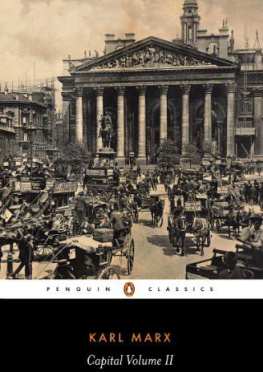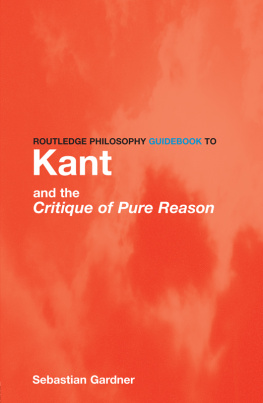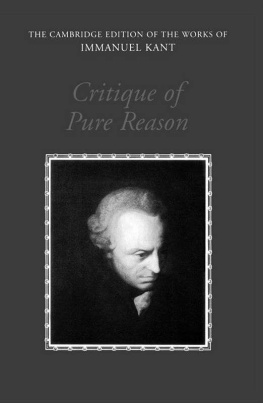Konings - Capital and Time: For a New Critique of Neoliberal Reason
Here you can read online Konings - Capital and Time: For a New Critique of Neoliberal Reason full text of the book (entire story) in english for free. Download pdf and epub, get meaning, cover and reviews about this ebook. City: Redwood City;CA;USA, year: 2018;2017, publisher: Stanford University Press, genre: Politics. Description of the work, (preface) as well as reviews are available. Best literature library LitArk.com created for fans of good reading and offers a wide selection of genres:
Romance novel
Science fiction
Adventure
Detective
Science
History
Home and family
Prose
Art
Politics
Computer
Non-fiction
Religion
Business
Children
Humor
Choose a favorite category and find really read worthwhile books. Enjoy immersion in the world of imagination, feel the emotions of the characters or learn something new for yourself, make an fascinating discovery.

Capital and Time: For a New Critique of Neoliberal Reason: summary, description and annotation
We offer to read an annotation, description, summary or preface (depends on what the author of the book "Capital and Time: For a New Critique of Neoliberal Reason" wrote himself). If you haven't found the necessary information about the book — write in the comments, we will try to find it.
Konings: author's other books
Who wrote Capital and Time: For a New Critique of Neoliberal Reason? Find out the surname, the name of the author of the book and a list of all author's works by series.
Capital and Time: For a New Critique of Neoliberal Reason — read online for free the complete book (whole text) full work
Below is the text of the book, divided by pages. System saving the place of the last page read, allows you to conveniently read the book "Capital and Time: For a New Critique of Neoliberal Reason" online for free, without having to search again every time where you left off. Put a bookmark, and you can go to the page where you finished reading at any time.
Font size:
Interval:
Bookmark:
CURRENCIES
New Thinking for Financial Times
Melinda Cooper and Martijn Konings, Series Editors
Capital and Time
For a New Critique of Neoliberal Reason
MARTIJN KONINGS
Stanford University Press
Stanford, California
Stanford University Press
Stanford, California
2018 by the Board of Trustees of the Leland Stanford Junior University.
All rights reserved.
No part of this book may be reproduced or transmitted in any form or by any means, electronic or mechanical, including photocopying and recording, or in any information storage or retrieval system without the prior written permission of Stanford University Press.
Printed in the United States of America on acid-free, archival-quality paper
Library of Congress Cataloging-in-Publication Data
Names: Konings, Martijn, 1975 author.
Title: Capital and time : for a new critique of neoliberal reason / Martijn Konings.
Other titles: Currencies (Series)
Description: Stanford, California : Stanford University Press, 2018. | Series: Currencies: new thinking for financial times | Includes bibliographical references and index.
Identifiers: LCCN 2017019565| ISBN 9781503603905 (cloth : alk. paper) | ISBN 9781503604438 (pbk. : alk. paper) | ISBN 9781503604445 (e-book)
Subjects: LCSH: Speculation. | Capital market. | FinanceGovernment policy. | Capitalism. | Neoliberalism.
Classification: LCC HG6015 .K66 2018 | DDC 332/.041dc23
LC record available at https://lccn.loc.gov/2017019565
Typeset by Classic Typography in 10/15 Janson
Contents
INTRODUCTION
Beyond the Critique of Speculation
The most real thing is money, but money is nothing more than a form of debt, which is to say a commitment to pay money at some time in the future. The whole system is therefore fundamentally circular and self-referential. There is nothing underneath, as it were, holding it up.
Mehrling 1999: 138.
Following the financial crisis of 20078, many progressive academics and commentators loudly declared that the event was simply the manifestation of what they had long arguednamely, that rampant speculation in unregulated financial markets was fuelling an unstable accumulation of financial claims entirely out of balance with fundamental values, and that this would sooner or later lead to a massive crisis (see, among many others, Baker 2009; Wray 2009; Gamble 2009; Cohan 2010; Stiglitz 2010; Foster and Magdoff 2009). As financial structures threatened to deleverage, progressive intelligentsia rushed to ring the death knell for the neoliberal policies of deregulation and nonintervention that they viewed as having given free rein to the markets animal spirits, Keyness term for the speculative impulses of the financial sector. At the height of the crisis, in the second half of 2008, as the American government moved to prop up some of the countrys major financial institutions, excitement about the return of the state was palpable. The morally problematic aspects of the bailouts did not go unnoticed, of course, but those were seen as only underscoring the basic lesson of the episodethat the financial system is unable to regulate itself and requires external interventions for there to be a coherent economic order. The future, it was argued, belonged to public regulation and Keynesian steering.
This has turned out to be a serious misreading of the crisis. Instead of a new New Deal (Krugman 2009: xix), we got a neoliberalism recharged. Far from a political turning point, the crisis has been the occasion for an entrenchment of neoliberal principles and an extension of its operative mechanisms (Mirowski 2013; Cahill 2014; Dardot and Laval 2014). The financial sector has not only restored most of its precrisis sources of profit, but it has also opened up a range of new opportunities for speculative investment, not least in areas that feed directly off the significant insecurity and dislocation wrought by the crisis itself (Soederberg 2014). And yet, awareness that initial assessments were mistaken has prompted only limited efforts to rethink the critique of neoliberal capitalism. All too often, the unexpected resilience of neoliberalism is only taken as so much more evidence of the fundamental irrationality of faith in the self-regulating properties of the market. At the same time as capital unearths new sources of value to validate its speculations, the critics of neoliberal capitalism are back to announcing the unsustainable nature of financial speculation and the inevitable arrival of the nextthis time truly finalcrisis of neoliberal capitalism (Duncan 2012; Hudson 2012; Crouch 2011; Lapavitsas 2014; Streeck 2014; Kotz 2015; Keen 2017; Durand 2017).
The critique of speculation as an irresponsible bet on the future, one unwarranted by fundamental values, has always been an important element of the heterodox critique of capitalism, but it has become its centerpiece during the neoliberal erawhich, it is certainly true, has given a huge boost to the speculative dimension of capitalism. Where mainstream economic theory often discerns little more than self-correcting deviations from an equilibrium state, critical and heterodox perspectives find irrational forces that are responsible for the periodic build-up of unsustainable, top-heavy structures of fictitious claims. That dynamic, they argue, must sooner or later come to a halt when foundational values reassert themselves and overleveraged financial structures begin to unravel. Such reasoning has become closely associated with a cyclical theory of capitalist development that views speculation as a sort of congenital pathologya problem that rears its head with a certain regularity and corrupts some of the systems normal functions. This way of thinking is epitomized and formalized in the contemporary return to the work of Karl Polanyi (1944), whose concept of the double movement posits that history evolves in cycles: periodic disembedding movements, when the speculative logic of the market becomes unmoored from its social foundations, are inevitably followed by re-embedding movements, when the state intervenes to resubordinate markets by reimposing limits and restoring foundations (Blyth 2002; Abdelal 2009; Dale 2010; Streeck 2012; Fraser 2013; Block and Somers 2014).
The critique of speculation harkens back to an older critique of money and finance: the critique of chrematistics in antiquity, as well as the way the latter was reformulated as a critique of the idolatrous worship of money in premodern Christianity. In this tradition, speculation is depicted as an investment in promises that lack foundation, as the irrational attribution of value to fictions devoid of substance. At the heart of the heterodox critique of contemporary capitalism, then, is a distinction between real and fictitious value; speculation is seen to generate financial forms that lack substance and whose claim to value is fake or illusory. That the orthodoxy of the past is todays heterodoxy is an almost too obvious clue as to the conservative and anachronistic character of the critique of speculation. The modern subject speculates not in defiance of fundamental values but precisely because secular life offers no such foundations to fall back on. At an experiential level, moderns readily intuit that not speculating is not an option, and that their speculations are pragmatically motivated positions in an interactive dynamic of speculation, that is, in a logic of specularity (Orlan 1989; Vogl 2015: 113). Value has no existence apart from the pragmatics of valuation, which are always anticipatory, bound up with expectations of the use that new connections are likely to have for us (Muniesa 2011). We are forever faced with the practical impossibility of distinguishing between a position that is speculative and one that is oriented to real values (Esposito 2011: 77).
Next pageFont size:
Interval:
Bookmark:
Similar books «Capital and Time: For a New Critique of Neoliberal Reason»
Look at similar books to Capital and Time: For a New Critique of Neoliberal Reason. We have selected literature similar in name and meaning in the hope of providing readers with more options to find new, interesting, not yet read works.
Discussion, reviews of the book Capital and Time: For a New Critique of Neoliberal Reason and just readers' own opinions. Leave your comments, write what you think about the work, its meaning or the main characters. Specify what exactly you liked and what you didn't like, and why you think so.








